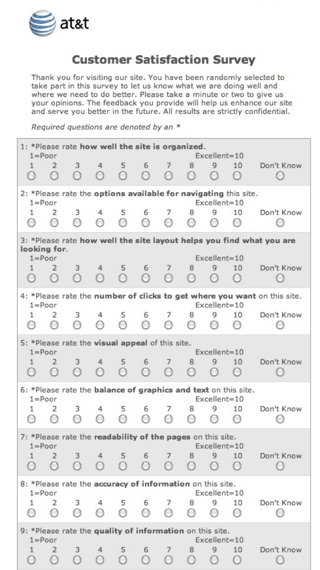Customer feedback programmes are extremely powerful in an organisation when done right. Customer feedback is gold and can help a business:
✔️ retain and sell more to existing customersWe've succesfully implemented feedback programmes throughout Europe, but we've also seen feedback programmes gone wrong.
There is a great deal of value in market research. And research requires asking questions. There is a hypothesis which you'd like to test, an answer to a question you'd like to find. That's when you use long surveys to get answers from people within your focus.

Getting customer feedback about their experiences at your stores, on your webshop, with your customer service department is a completely different ball game. Here the methodology is quite the opposite. We do not want to lead customers. We don't ask them many questions. It is their perception we're after, their emotions, their opinions. So let them have it. Reduce the numbers of questions and keep the feedback flow as open as possible.
We also want our customers' opinions to be representative. That means that if we collect feedback after interactions, we need a lot of it by as many customers as possible. Traditional market research surveys know response rates of 1 to 5%, whereas the 2-question feedback method gets response rates of at least 10% (on average our customers get 20 to 30% response rates).
Let's first of all think about the purpose of getting customer feedback. You want to know how you are doing in the experience department. You want to understand what your customers value. You want to get a good grip on your staff performance.

Design manipulation is focused on getting customers to give higher scores than they intended to. It's the wrong means to an end. If you want real understanding, to make real improvements you need unbiased feedback. If that means dealing with more negative feedback and lower scores, it means dealing with it.
Only then you can work toward better. And that is what it is about after all.
You have to understand that a customer giving you feedback, means that a customer wants to give you some of their time. And time is valuable to them. So they are willing to give you something valuable of theirs.
Acknowledge that and respect them for it. They will appreciate it which will give them a better feeling about your brand.
A few things you should do:
1) Thank everyone for giving you feedback, it's the least you can do.
2) Reach out to customers who have shared a negative experience. Think about how you can make up to them and do exactly that.
3) If you are tackling bigger issues, make sure to communicate about them more broadly. That way all of your customers know that you care and that you act upon their feedback. This way you can reach a certain level of co-creating.
It is very human to want to focus on things that are not going very well, because working often means fixing things and making improvements. That is why we often see companies that only share the negative with their employees.
Whereas getting employees to do better, to go that extra mile works a lot better with positivity. Learning from their own customers that they've made a difference, that they did well is just so motivating!
Foster pride and enthusiasm in your organisation by sharing the good. You'll be amazed what effect positive feedback has on people (don't we all thrive on compliments and positivity?)

Subscribe to the Hello Customer newsletter and receive the latest industry insights, interesting resources and other updates.